How Powerlifting Saved This Instagram Influencer’s Life and Why She’s Speaking Out About Mental Health
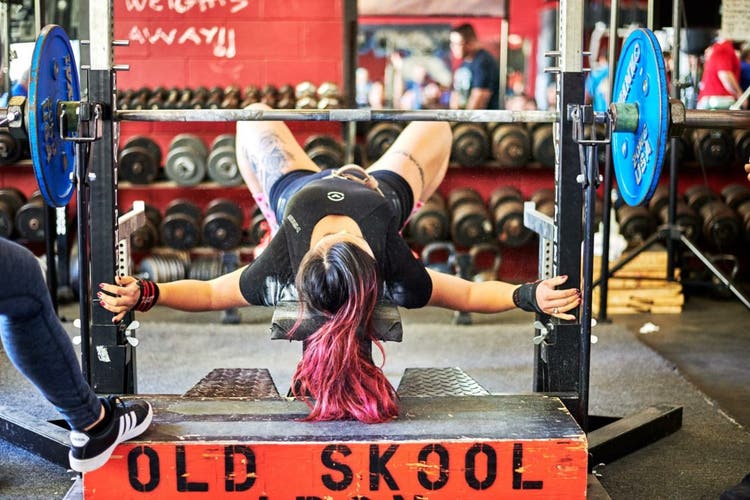
When Cynthia Leu got out of an abusive relationship that made her feel weak as a teen, she naturally gravitated toward something she perceived would make her strong.
“I enlisted in the Marine Corps Reserves when I was 17 to become stronger physically, mentally and emotionally,” the Bay Area native recalls. “I thought, if I’m physically strong, if I do things that people view as strong, then maybe I can trick myself into thinking I am strong.”
After enlisting, Leu also started school at the University of California, Davis, studying communication and sociology. But despite being in the Marines, she was assaulted at knifepoint by a stranger during her sophomore year and the experience left her afraid of the dark and suffering from panic attacks and post-traumatic stress disorder.
“It’s something I hid while I was going through it because I thought, I’m this big bad Marine, nothing should affect me. But I got to the point where I couldn’t leave the house at night alone without having a panic attack,” Leu says. “It was yet another situation where I felt weak and powerless. And it was so frustrating. I get angry whenever I feel powerless and that anger motivates me to push past it. I ended up forcing myself to face the dark repeatedly until I had less panic attacks. After a year and a half, I was no longer afraid.”
That experience, coupled with negative comments from a college boyfriend about her weight gain—and eventually cheating on her with someone skinnier—spurred Leu to start going to the gym to cope. But at that point, her only goal she says was to get skinny and fit for a bikini competition. She spent her time doing cardio and resistance machines at the gym twice a day and obsessively tracking her caloric intake.
Her obsession with diet and working out led to what Leu says was exercise bulimia and eventually bulimia nervosa.
“I was unfortunately really good at hiding it from everyone,” Leu says. “I had a six-pack. I looked physically fit. But I was so ill. Nobody could tell that I was throwing up blood or that I couldn’t even go to social functions where there was food because it would spark too much anxiety. On the outside, I looked fine. In fact, people would constantly tell me how great I looked and congratulate me on the weight loss. It’s important to realize that health is not always physically obvious. Sometimes the people who look healthy are not, and the people you’re judging as unhealthy might actually be healthy.”
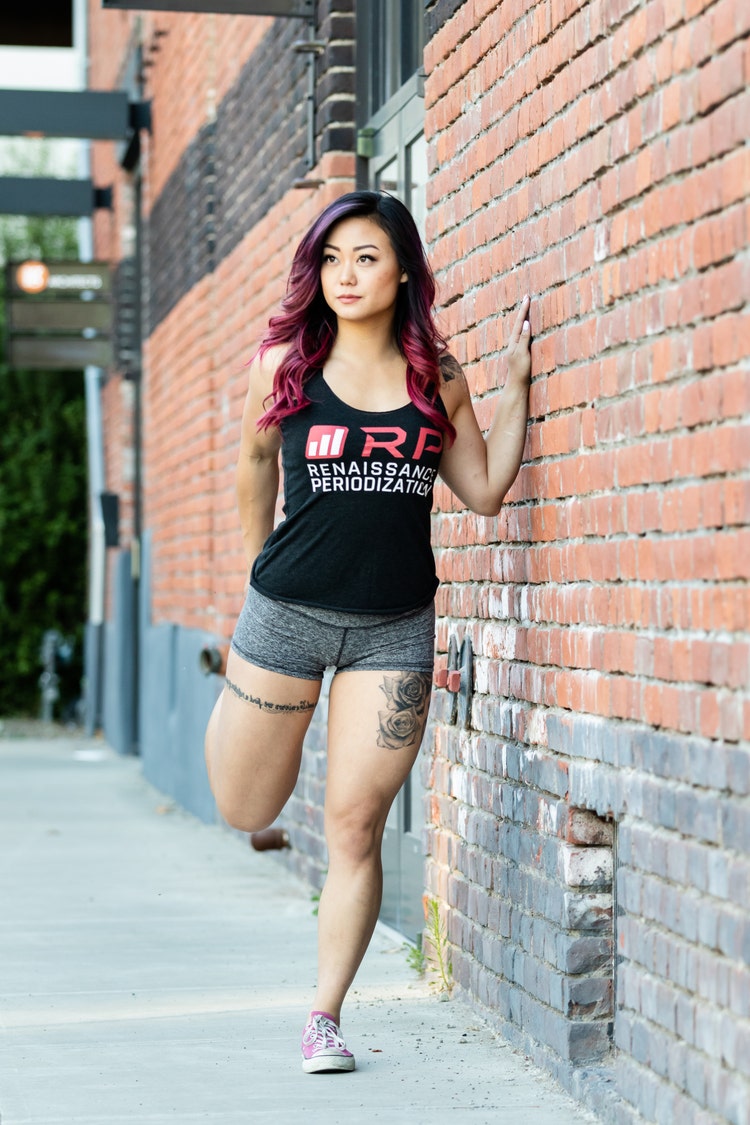
The power of lifting
Leu spent a lot of time in the gym doing cardio and using the machines. While she didn’t squat or bench since she couldn’t do much weight, she had a natural affinity for deadlifting. A powerlifter at a gym she was visiting saw her deadlift and encouraged Leu to do a powerlifting competition.
Leu and her friend decided to sign-up for their first powerlifting meet and started training in strength-focused powerlifting style for fun. But, moving away from cardio based workouts, Leu realized she couldn’t keep up her habit of bingeing and purging and still have the strength to lift the next day at the gym. She could only bench an empty barbell for a few reps, but just a few weeks of keeping food in her body showed that she could actually get stronger.
“At that point, I couldn’t even stand the feeling of being full. That was one of my triggers. But slowly through training for powerlifting, the feeling of fullness changed to meaning that I would be strong the very next day or that day. And that was something that I held onto into those three months of training for the [competition],” she recalls.
Slowly, Leu’s priorities began to shift and change the way she viewed food, fitness and even her body. “I started focusing on just getting stronger for the competition. But I even started seeing positive changes in my body, as well,” Leu says. “I don’t want to say it automatically fixed me, but once I was able to work towards a different goal, not just like what I look like in the mirror, I felt strong. And after I competed in my first meet and broke some junior records, I was hooked and knew I found something I wanted to keep working toward.”
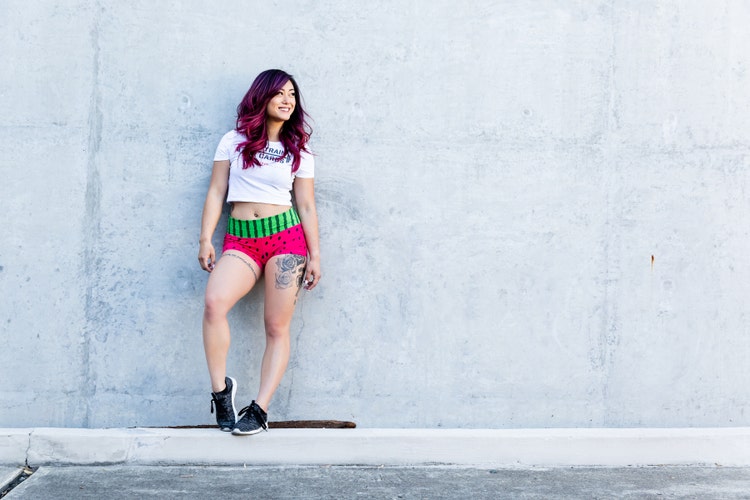
From lifting to lifestyle
Today, Leu doesn’t do as much powerlifting as she did in college—maybe only one or two competitions a year. Instead, her focus has shifted to making fitness and health a part of her daily lifestyle, especially since she now works a full-time job at a top tech company in Silicon Valley.
For Leu, that means getting to 24 Hour Fitness at least three times a week because it works with her schedule. And while her company does provide her with breakfast and lunch, Leu uses a meal-prep service to save even more time during the week.
“I use meal-prep services since my time is important! Less time cooking or going out to eat is more time spent on your other priorities. Optimizing the time you have is key. See if there are any areas in your life you can optimize so you can get time back,” Leu advises.
Breakfast usually looks like Greek yogurt and fruit, followed by a lunch full of lean proteins, healthy carbs, healthy fats and tons of vegetables. But Leu says she tries not to keep her eating habits too rigid. “Because of my past with disordered eating, I don’t like to cut out any types of foods,” she says. “I still go out and eat occasionally and just focus on portion control. I don’t believe, ‘This food is bad, so I’m not going to touch it.’ In fact, there isn’t a single food that I avoid completely!”
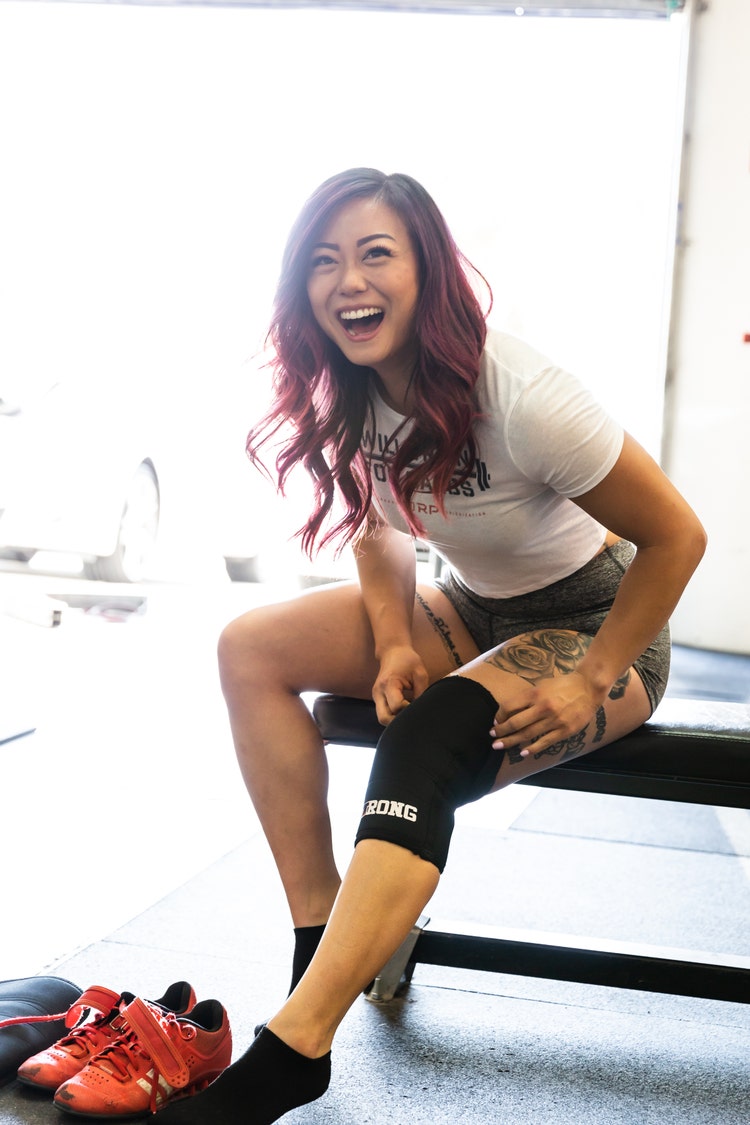
You can’t out-train mindset
When she’s not lifting or training for a competition, Leu uses yoga to round out her fitness routine and loves hiking—something she said is great for both cardio and her mental health by getting outside.
Recently, Leu, who up until this point has spent a lot of her presence on social media talking about fitness, has been branching out and talking about a different side of wellness—having a healthy mind.
“You can’t out-train an unhealthy mind,” Leu says. “And the older I get, the more I realize taking care of yourself is so much more than just physical.”
Leu has used her platform to be honest with her followers about her own mental health struggles. And while she says that it’s an effort to show people that fitness is a great form of therapy, “it’s also not enough to rely on the gym or weights to keep you healthy. There’s so much more,” she says.
Leu recommends finding goals outside of physical appearance. “When you’re measuring your progress by a number on the scale or what you look like in the mirror, even when you hit your goal weight or you feel like you look good, it’s just never going to be enough,” she says.
Instead, Leu advises, try setting specific goals that don’t have to do with a goal weight like “I want to run faster” or “I want to lift this much weight.” She also recommends finding a support group of people with similar interests or struggles—online or in person.
“For me, a big part of my own recovery was being honest with my friends and family,” she explains. “I told them what I had been doing, and it made it so that I could no longer slip away after eating. I could no longer disappear into the bathroom. I could no longer hide it from them. That was a safeguard to keep me from doing that, because unfortunately, even though it’s been years and years and years, I still have some negative thoughts sometimes. I am able to reframe the way I’m thinking and realize that I’ve come so far. I don’t want to let other people down, as well. It’s good to have other people to keep you accountable if you feel like you might slip up.”
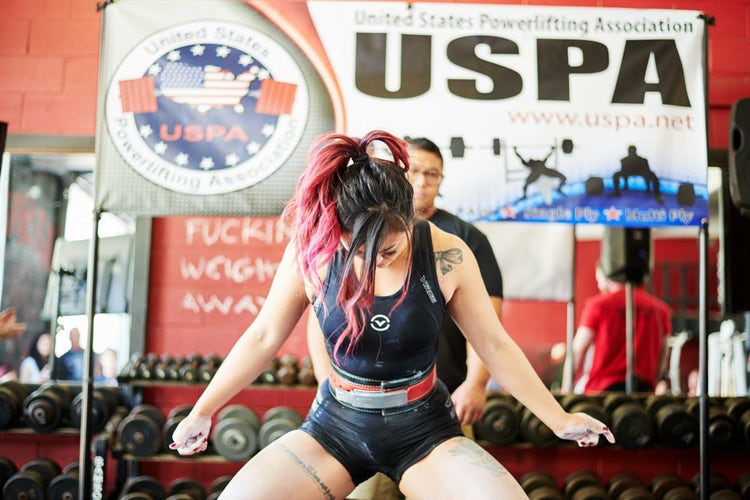
A life of influence
While she never imagined her reach on social media could be so widespread, Leu is grateful that she’s been able to use her voice for good.
“The amount of people that I can impact every day—the amount of people I’ve been able to reach, it’s crazy and really humbling and awesome to know that you can have a positive impact on someone even if you’ve never met them,” Leu says.
Leu is currently working on launching a blog, where she hopes to share her ongoing experience battling mental disorders and disabilities. She hopes to help others understand that it’s okay to seek help and be vulnerable—and that a person’s diagnosis is not their identity. She eventually wants to interview doctors and mental health experts in order to provide people with free, accessible resources and also share her personal story of how therapy and working with various doctors has benefited her.
“I get a lot of people reaching out asking about mental health and what’s the first step they should take,” she says. “And unfortunately, unless you have really good insurance, sometimes it’s difficult to find the treatment you need. So I want to be able to help others take the first steps to gaining control of their mental and emotional health.”
Photo credit: Courtesy of Cynthia Leu and EMOM Photography